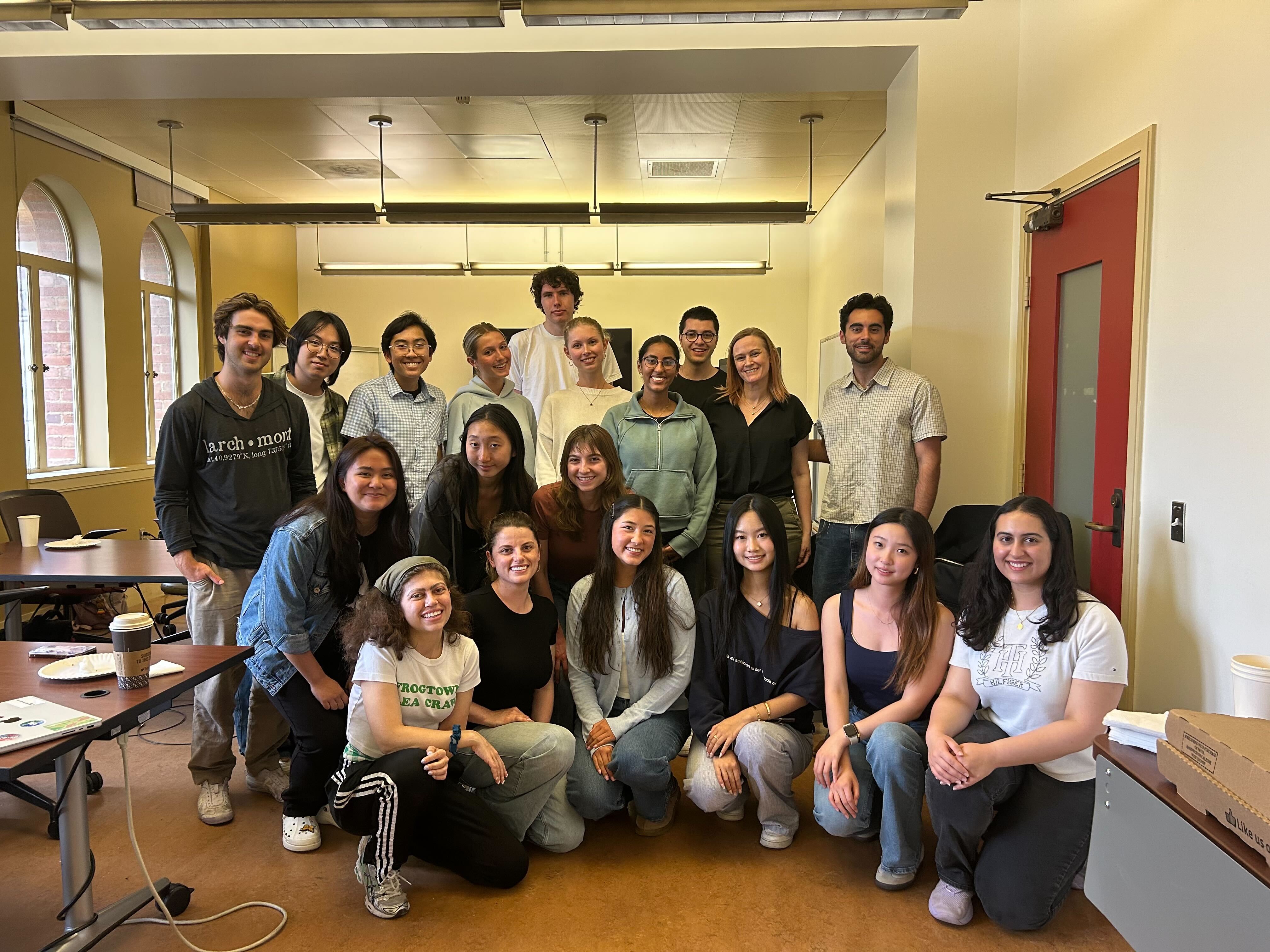This post was updated July 6 at 7:49 p.m.
Aleph, UCLA’s only official undergraduate research journal for the humanities, arts and social sciences, was two weeks away from printing its final volume of the academic year when student editors learned the journal would lose all of its funding from the university.
The journal, which has published original undergraduate student research for over 20 years, operated under the Undergraduate Research Center as a two-unit research practicum course offering upper-division honors credit.
The journal will enter a new era as a student organization without financial support from the university, said Jordan Lombardi, Aleph’s incoming co-editor in chief. She added that the program will also lose its status as a research practicum course.
While Aleph was still able to publish its latest volume online, the team had to cancel its planned print edition, despite staff already promising physical copies to authors, said Mandy Tang, a UCLA alumnus and Aleph’s previous outreach coordinator and assistant chief editor.
“As a culture, we’re stepping away from that virtue of valuing the diverse backgrounds that people come from, and that is a core tenet of social science research,” said Lombardi, a fourth-year applied math and sociology student. “So, I’m not necessarily surprised that funding is being cut.”

The URC is overseen by the Division of Undergraduate Education, which faces significant budget cuts due to anticipated reductions in state and federal government funding, said Charles Alexander, the director of the Academic Advancement Program and associate vice provost for student diversity.
AAP, an academic and career counseling program under DUE, also paused three of its programs and laid off staff July 1 due to the budget cuts.
[Related: Academic Advancement Program to pause some programs, reduce staff amid budget cuts]
The journal features research spanning disciplines including history, literature, political science and philosophy. Recent articles have examined topics ranging from healthcare disparities in Los Angeles to Chinese Buddhist ascetic rituals.
Justin Brown, a UCLA alumnus and the journal’s former chief layout editor and editor in chief, said he first learned about the program’s changes when they sent an email to the journal’s leadership – and received an automatic reply stating that Aleph had been impacted by budget cuts.
“That was heartbreaking. It was stunning. I really just sat and stared at my computer for a good 10 minutes,” he said. “That’s so antithetical to my own understanding of the value of education. … To go from, one year, to being publicly proud of your undergraduate research program, to completely cutting it out, it’s disappointing.”
Research published in Aleph undergoes a yearlong editorial process and operates as a double-blind journal, where editors do not know the identities of students who submit research, and authors do not know who edits their work, Lombardi said.
Before the funding cuts, Lombardi added that the journal’s class credit was helpful for many students, especially as it counted toward the professional writing minor.
Aleph’s faculty advisor was also laid off because of the cuts, Lombardi said.
Brown said they believe it would take years for a new advisor to reach the level of institutional knowledge and experience the journal’s previous faculty mentor brought to supporting first-time undergraduate researchers.
He added that he believes the journal’s printing costs were relatively low – under $10,000 – and said cutting the program for financial reasons was unjustified.
Casey O’Brien – a fourth-year linguistics student and former developmental editor, copy editor and co-managing editor of Aleph – said joining the journal helped her find community on campus after transferring to UCLA.
She added that Aleph gave her a behind-the-scenes look at how research journals are produced – an experience she said many undergraduates don’t often have.
“Seeing such a very passionate community about research has been very motivating to want to keep going and understanding that humanities research is still valuable, even if it’s less represented,” O’Brien said.
Tang said the journal helped her build editing and communication skills as an international student from Shanghai. She added that the loss of Aleph’s previous structure and faculty support saddened team members, who had formed a close-knit community over their time in the journal.
A UCLA spokesperson said in a written statement that Aleph is “dedicated to highlighting undergraduate research in the humanities, arts, and social sciences.”
Students involved in the journal are not required to be enrolled in a research practicum course, but they still have the opportunity to publish their work, the spokesperson added.
Brown said they believe the decision to cut the journal’s institutional support undermines UCLA’s identity as a leading research university.
“Considering that the undergraduates are the largest body of students at the school – at a famous research institution – it just seems so very exclusionary,” he said.
Despite losing university support, Lombardi said she and another returning staff member, Tahlia Disisto, stepped up to lead the journal next year. She added that they took initiative because of their shared commitment to keeping Aleph running.
O’Brien added that she believes students’ passions for research will help the journal continue operating, even though she believes the transition to a student-run organization poses significant challenges.
“I have no doubt that the people that are still involved will continue it. It will continue to live on,” she said. “I know that it’s not going to be defined by the lack of funding.”




Comments are closed.